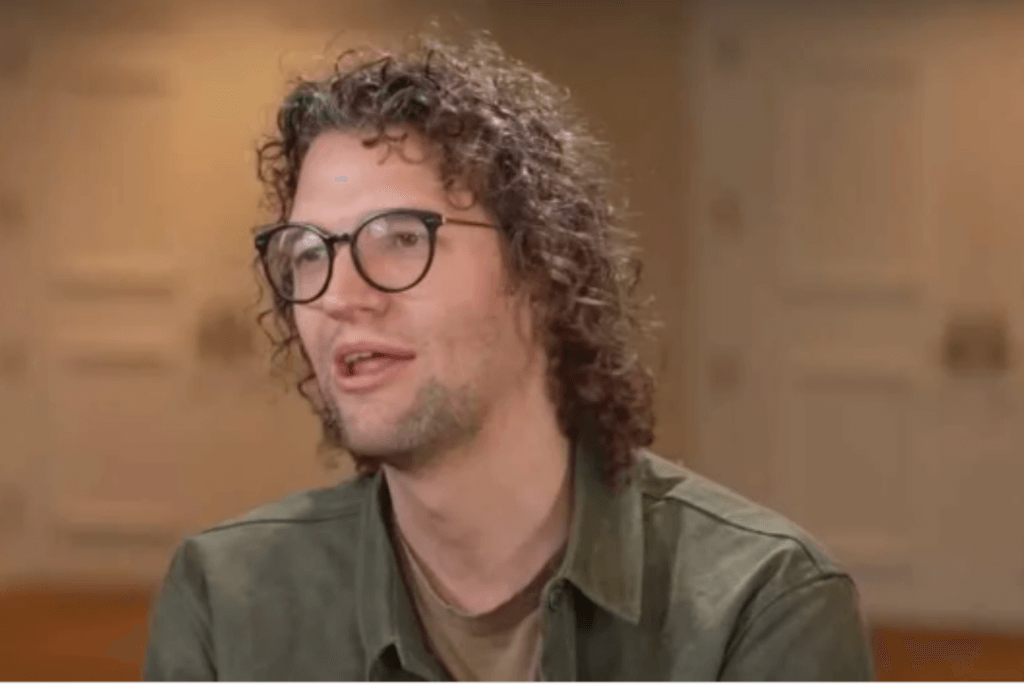Ally Tower sat still in the church pew, unsure why she was weeping. She was happy with her life in Wicca. She loved the witches in her coven like family. And with her past full of pain and rejection, she felt more empowered than ever. So why was she weeping?
“I cried through the whole first part of the service—all through worship,” Tower says. “When worship was over, this woman came up and told me that Jesus loves me.”
That night, Tower surrendered her life to Jesus Christ and left Wicca behind. She traded her feminine deities for a heavenly Father and her spells for Bible-centered prayer.
That was 19 years ago. Since then, Tower has watched witchcraft’s hold on American culture strengthen in unprecedented ways. Instead of being a secret to hide, witchcraft is now a trend to try.
If social media is any indicator, Tower is right. Pagan symbols are often used as a fashion statement or joke, such as when summoning circles (candles surrounding a desired object) trended on Twitter earlier this year. Even big companies like Universal normalized the occult meme with lighthearted captions about wishing for more vacation days.
Perhaps as a result of witchcraft’s newfound popularity, Tower sees more people pursuing Wicca and paganism than before.
“Back when I was practicing [Wicca], there was a lot of hard work that went into it—nothing came easy,” she says. “It was certainly not an easy practice. It was something you had to study and you had to work at. In order to obtain knowledge, there were things you had to do. Nowadays, you type it into the internet, and you pull it up. It’s right at your fingertips.”
Research seems to support Tower’s observations. Trinity College ran studies from 1990 to 2008 that indicated the number of Wiccans in the U.S. grew from 8,000 to 340,000. In 2014, Pew Research found that 0.4% of the American population—roughly 1.5 million people—identified as Wiccan or pagan.
But these numbers only indicate those who identify as witches. Research can’t quantify the number of people in the U.S. who secretly practice witchcraft or who dabble in occult practices.
So how should the church respond to this dark trend? To answer that question, Charisma interviewed several ex-witches and deliverance experts. Each offered compelling insights and eye-opening stories to help the church not only root out subtle forms of witchcraft among their own, but also reach witches with the gospel.
Witchcraft’s Subtle Seduction
Before believers can address witchcraft in the world, though, they must address it in the church. After all, many people engage in witchcraft practices without even realizing it, says former witch Heath Adamson.
Adamson—Christian author, chief of staff of Convoy of Hope and leader of feedONE—says he got involved with witchcraft as a young boy because he didn’t realize the sinister nature of certain activities.
“I began to experiment [with the spiritual world], and what started out as fun and entertainment quickly became a stronghold and a bondage,” he says. “I became steeped in the occult and even Satanism and witchcraft and some other things at a very young age. Unfortunately, it held me bound for about 17 years.”
But God spoke to one of Adamson’s middle-school friends and told her to pray. Eventually, through this young girl’s prayers, Adamson got saved and delivered, and the two are now happily married.
But Adamson says he’s not the only one to play with dangerous spirituality.
“It starts out with what seems to be the folklore of childhood,” he says. “I meet a lot of people who dabble in reading some books like the Book of the Dead, The Necronomicon, things like that. People mess around with the board games like the Ouija board, Tarot cards, but the reality is, although some of those things seem innocent, and some of those things seem like just the things kids do, the reality is Scripture does tell us to have nothing to do with things like astrology and mediums and spirit guides. Why is that? Because behind some of these things that appear to be innocent or childish or entertaining are often spiritual realities.”
Former New Age guru Steven Bancarz is another example of unintentionally falling into the dark arts. Bancarz grew up in a Pentecostal Christian home where church was a high priority. His parents home-schooled him with Christian curriculum and raised him to know the gospel. But that didn’t make him immune to the enemy’s wiles. Interestingly, it wasn’t spells or Ouija boards that seduced Bancarz. It was the idea of aliens.
“If there are theoretically millions of planets that are populated with intelligent life just like ours, I couldn’t reconcile these questions with the Christian worldview,” he says. “That really led me down a rabbit trail into the occult where a lot of people who are teaching this idea about aliens are New Age teachers. It’s kind of a package deal.”
Bancarz pursued ufology (the study of aliens and UFOs) to the point of becoming an expert. He began teaching online followers how to “wake up to a higher state of consciousness” and launched a website that got hundreds of thousands of clicks every day. That translated into tens of thousands of dollars in ad revenue each month.
Bancarz thought he had all he wanted, but his dream life soon turned into a nightmare. During times of lucid dreaming and astral projection, demons would sometimes attack him.
“I thought I was on good terms with the Lord,” he says. “Meanwhile, I was completely fighting for the wrong side of the kingdom. … My sin started catching up with me and started finding me out. I was totally depraved.”
But one day in his luxurious home, Bancarz encountered Jesus. He was overwhelmed by the truth that Jesus is Lord of all, and he gave his life to Christ.
“My heart’s cry for the church and for the body of Christ is for us to take our relationship with God more seriously than any other relationship in our lives,” he says. “That should be the most important thing to us. From the moment we wake up to the moment we go to sleep, and that really is our only chance to be protected against deception, especially in these end days when it’s only getting more intense.”
Witchcraft in the Church
But witchcraft doesn’t just seduce unwitting believers. Author, speaker and former pastor Andy Sanders says the enemy often sends witches to attack local bodies of believers. In his 26 years of preaching and teaching, he has encountered many witches attempting to infiltrate his congregations.
One was a man posing as a minister who entered Sanders’ church with an air of importance.
“He demanded specifically that he would preach that Sunday night because God told him he was supposed to preach to my church,” he says. “Here’s the thing: I was scheduled to preach that day, and I was the senior pastor. That’s a key sign right there, when someone comes walking through the door with an entourage demanding that they’re going to preach in your church. That’s already witchcraft.”
After all, witchcraft is as the sin of rebellion, according to 1 Samuel 15:23. In order to deal with that rebellion, Sanders had to be strong in his response to the impromptu visitor.
“I said, ‘Absolutely not; you’re not going to speak,'” he says. “He not only disrupted my service, but he also went around behind my back to as many parishioners as possible … and said all of these things about me that were never true. Later, I found out he wasn’t even a minister at all. He was actually involved in witchcraft.”
Sanders recalls a second instance, this time involving a staff member who had been in the church even longer than Sanders had. Certain people in the church put this person on staff against the previous pastor’s will.
“This specific individual had the reign to do whatever they wanted, how they wanted and why they wanted,” Sanders says. “And over the years, they continued to grow more and more rebellious.”
The problems continued to grow worse, but Sanders couldn’t do anything about it—until the staff member started manifesting a demon in the middle of a one-on-one meeting.
“This person manifested a demon right in my office,” he says. “I went to put my hands on this person and cast the demon out, but the Holy Spirit said, ‘Do not touch this person because they’re trying to trap you right now. They’re going to say you physically abused them.'”
Sanders says it took a lot of prayer and fasting, but eventually the person went through deliverance and moved on from that church.
Through his experiences, Sanders learned that witches can infiltrate churches quickly from the outside or gradually from the inside. But both methods involve two telltale signs: an aggressive rise in the ranks of church leadership and a propensity for breeding disruption.
“You’ll always discover that when a witch comes in, he or she is automatically going to disrupt,” Sanders says. “Recently, there was a pastor who, every time they got behind a podium for several weeks, they were tongue-tied and actually couldn’t preach. So they went and began seeking it out. The Lord revealed to them that there was a witch who had come into the church.”
The disruption doesn’t have to be boisterous. Sanders says subtle disruptions like gossip, continually contradicting leaders or a simple disturbance in the spiritual environment can still do damage.
But he makes it clear that the battle is not against the witch as a person. Instead, as Ephesians 6:12b makes clear, our struggle is against “principalities, against powers, against the rulers of the darkness of this world, and against spiritual forces of evil in the heavenly places.”
Because of this, Christians must also be careful not to prematurely assume people are witches simply because they struggle with rebellion or anger. If a believer suspects someone in the church may be a witch, they should pray before even bringing their thoughts to leadership.
“You don’t want to report on somebody who is innocent,” he says. “Sometimes it is … the emotion of that person, or maybe that person rubs us the wrong way. If they really know something is going on, especially if they’re involved with children and youth, then pray first. Then secondly, they need to make a personal appointment with the pastor or leadership team, because the last thing they should do is go behind that individual’s back and trash talk them. Satan loves to get gossip going in the church.”
John Burton, a revivalist and preacher, has had quite a few run-ins with witchcraft as well. When God led him to plant a church in a city he didn’t realize was well-known for its history of witchcraft, Burton had to learn spiritual warfare in a whole new way.
Victory over spirits of witchcraft, he says, starts with understanding how powerful the enemy is—and how much more powerful God is.
“A lot of Christians go about it the wrong way,” he says. “The reality is the Bible never says [Satan] is a toothless lion. It says he has teeth. He’s seeking to devour. I’ve never seen a lion devour its prey by gumming it to death. They have teeth. … We must understand that [Satan] is a vile, murderous enemy, seeking whom he may devour. … When we have that established, then we have a better understanding of just how much more powerful God is. God is so much more majestic.”
Christians also must understand their authority—and Burton says it’s not the same for every believer.
“We don’t all have the same authority in every realm or every sphere or every place,” he says. “I can’t just go into another pastor’s church and presume that I have authority there too.”
He gives the example of having authority in Manitou Springs, Colorado, because God led him to plant a church there. But if he drove to a city just a few hours away, he says he wouldn’t have authority over the principality there.
“[In that situation], God hasn’t revealed anything to me, and He hasn’t given me that assignment,” he says. “If I discern someone is demonized, I can’t just go up to that person and set them free … because that pastor has authority, and I need to be respectful of it. That’s why when I travel and speak and minister, it’s really important that I understand what authority has been delegated to me by the leadership in the church.”
Burton also says timing is an issue. Sometimes Christians move too fast to deal with demonic forces. As a result, the enemy blindsides them with an attack that could have been avoided with more research.
“With some people, this frustrates them because in their minds, it overcomplicates things,” he says. “But trust me, you do not want to get blindsided by the enemy because you presumptuously moved when you should have waited.”
Reaching Out in Love
Although the aforementioned tactics can help Christians protect themselves and their churches, trying to win witches to Christ takes the battle to an even higher level.
Burton recalls one witch who came to him asking for help. He and his wife, Amy, went to the witch’s home to pray with her and walk her through deliverance. But for some reason, Burton couldn’t pray. His mind and spirit were restless.
He walked through the witch’s house to pray. As soon as he set foot in her bedroom, he couldn’t breathe.
“The only way I can describe it is like I stepped into a swimming pool sideways,” he says. “I walked into this wall of water, and I just really couldn’t breathe.”
Burton asked the woman what witchcraft-related items she was keeping in that room. They threw away occult T-shirts, a poster, books and a small altar on the nightstand.
“Then the Lord spoke to me,” Burton says. “Now everything’s opened up, and I can pray. He says, ‘John, there’s something going on, and the enemy is forcing her to record what happens in this room by journaling.'”
Burton asked the witch if this was true, and she began to cry. She told John and Amy that this was the real reason she asked them to come. Demons terrorized her every night and forced her to record her living nightmares in dozens of journals.
The Burtons threw away the journals and prayed over the woman, but sadly, her newfound deliverance did not last.
“She did OK for just a little while, but then she ended up disappearing,” Burton says. “And we couldn’t find her. … She actually had all sorts of medical issues and lost her child and completely turned back. She blamed Amy and me for taking away her power.”
Burton uses this experience as a cautionary tale for pastors—not all witches want to be free. Because of that, pastors must exercise discernment when trying to reach people caught up in witchcraft. It’s not an evangelistic game; it’s a battle for people’s souls.
When witches come to Christ, Burton says, it’s important for them to get plugged into a healthy church community and learn to have deep fellowship with Jesus through the Holy Spirit.
This can be hard, though, Tower points out, because many witches feel burned by the church.
“Part of the problem is a lot of people, especially witches or Wiccans, have had bad church experiences or situations where Christians have not shown the greatest example of who Jesus is,” she says. “As a church, we’re supposed to be the arms and the feet of Christ. But many times in our own flesh, we fail horribly at that. So we’re not portraying who He really is. A lot of witches have this view of God as judgmental, harsh and careless, as though He doesn’t think very highly of mankind, when all of that is so false. So I would want them to see the truth and to see Jesus for who He really is.
“The best thing to do is to really love them as Christ loves us. And again, that’s a very hard thing to do, especially when someone is so against everything that you’re for. It’s certainly a test of our faith. But the best thing to do is to just be a friend and to pray and allow God’s Spirit to speak to you. Don’t turn them down, but be open and kind to them. Use the fruits of the Spirit to be loving and compassionate and kind.”
She cautions against being overeager or hypercritical when evangelizing to witches. Instead, as Christians speak the truth in love, Tower says, their words will pierce like a “sharp-edged sword.”
After all, Tower knows it was the love of Christ, not harsh words, that pulled her away from her seemingly happy life in Wicca.
“I’ve never experienced a love to that magnitude,” she says. “I’ve experienced love between coven members, but not with any deity and not to that magnitude. It was completely overwhelming.”
Testimonies like Tower’s prove that Christ’s love is, indeed, “as strong as death, passion fierce as the grave” (Song 8:6b). And not even witchcraft is powerful enough to quench it.
For more on spiritual warfare, check out this special $.99 offer on Charisma’s new e-book, The Spiritual Warfare Strategy Guide.
READ MORE: To read more about how Christians can respond to witchcraft, visit witchcraft.charismamag.com.
CHARISMA is the only magazine dedicated to reporting on what the Holy Spirit is doing in the lives of believers around the world. If you are thirsty for more of God’s presence and His Holy Spirit, subscribe to CHARISMA and join a family of believers who choose to live life in the Spirit.
Read articles like this one and other Spirit-led content in our new platform, CHARISMA PLUS.
See an error in this article?
To contact us or to submit an article





















